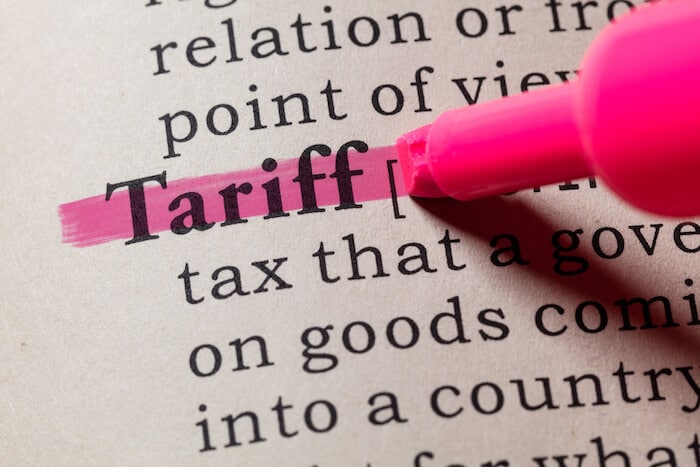The U.S. government has intensified its campaign against the controversial trade practices of Chinese fast fashion giants Shein and Temu. Central to this crackdown is the exploitation of the de minimis rule, a customs exemption allowing low-value packages to bypass standard tariffs and scrutiny. This enforcement shift impacts global supply chains and underscores deepening concerns about unfair trade practices and human rights violations in international commerce.
What to Know
- The U.S. targets Shein and Temu for exploiting the de minimis exemption.
- Investigations uncover labor violations, intellectual property theft, and potential forced labor connections.
- The U.S. response includes increased scrutiny, import blocks, termination of tariff exceptions, and broker suspensions.
- The actions trigger supply chain disruptions and elicit varied responses from stakeholders.
- These developments highlight the broader necessity for increased supply chain transparency and reduced dependency on Chinese manufacturing.
The Rise of Shein and Temu
Founded in 2008, Shein has rapidly emerged as a dominant player in the fast fashion sector, seizing a substantial market share in the U.S. by leveraging data analytics, streamlined supply chains, and the de minimis exemption. Shein now commands 40% of the U.S. fast fashion market. Following in 2022, Temu, created by Chinese e-commerce titan Pinduoduo, quickly became one of America’s most downloaded apps, winning over consumers with its cost-effective offerings.
Exploiting the De Minimis Loophole
Central to the success of Shein and Temu is their exploitation of the de minimis rule, which allows packages valued under $800 to enter the U.S. with minimal duties and customs inspections. By shipping billions of low-cost packages directly to U.S. customers, these companies have avoided the tariffs and scrutiny applied to larger imports, giving them a significant advantage over domestic retailers. In 2023 alone, an estimated 1 billion de minimis packages entered the U.S., with Shein and Temu accounting for nearly a third of these shipments.
Concerns Over Business Ethics
As the market presence of Shein and Temu has expanded, so too have the concerns surrounding their operational practices. Investigations have exposed various labor violations and intellectual property disputes. Particularly troubling are allegations of sourcing cotton from China’s Xinjiang region, notorious for its forced labor issues—a potential breach of the Uyghur Forced Labor Prevention Act. Shein has also faced multiple lawsuits for allegedly replicating designs and selling counterfeit goods. Furthermore, the environmental toll of fast fashion, characterized by significant waste and emissions, has come under increased scrutiny.
Timeline of U.S. Government Actions
Enhanced Scrutiny: On April 5th, DHS announced an increase in de minimis shipment screenings, following industry and legislative calls to mitigate the surge of Chinese e-commerce imports.
USCC Report: Released on April 14th, it details risks associated with Chinese e-commerce firms, emphasizing forced labor and data security issues.
Imports Blocked: Actions under the Uyghur Forced Labor Prevention Act led to the blocking of imports from 26 Chinese companies in 2024.
Tariff Exclusions Ended: President Biden allowed tariff exclusions for numerous Chinese products to expire, signaling a tougher trade stance.
Customs Brokers Suspended: On May 31st, CBP suspended several brokers under the Entry Type 86 program, impacting companies like Seko Logistics.
Industry and Political Reactions
The crackdown on Chinese e-commerce firms has sent shockwaves through the industry, with companies bracing for supply chain disruptions and delivery delays. Some experts predict that the suspension of customs brokers could lead to significant backlogs and bottlenecks, as companies scramble to find alternative routes and providers. Others suggest that the increased scrutiny could accelerate a shift towards more resilient and diversified supply chains, with companies seeking to reduce their reliance on Chinese manufacturers.
Lawmakers and trade unions have largely praised the government’s efforts to curb no-tariff shipments and protect domestic businesses. Some have called for further action, including legislation to close the de minimis loophole entirely for goods from China and other non-market economies. They argue that the exemption gives Chinese firms an unfair advantage and undermines U.S. jobs and industries.
Consumer Attitudes
Growing consumer awareness of the ethical and environmental costs of fast fashion is fostering a demand for transparency and sustainable practices. This shift could challenge companies like Shein and Temu to adapt to evolving market expectations while potentially opening opportunities for local and sustainable apparel producers.
Implications and Outlook
The U.S. government’s actions against Chinese e-commerce companies mark a significant shift in trade policy and enforcement. As pressure mounts to address unfair trade practices and human rights abuses, the future of the de minimis exemption remains uncertain. Congress may consider legislative changes to tighten the rules or limit their application to certain countries. Some experts suggest that a more targeted approach, focused on high-risk industries and regions, could be more effective than a blanket reduction in the de minimis threshold.
The crackdown also has far-reaching implications for U.S.-China trade relations, which have been strained in recent years by tariffs, technology disputes, and geopolitical tensions. The targeting of successful Chinese companies like Shein and Temu could further escalate trade tensions between the two nations, potentially leading to retaliatory measures and further trade barriers.
The New Landscape of International Commerce
The U.S. actions against Chinese e-commerce firms Shein and Temu serve as a powerful reminder of the complex challenges facing companies operating in today’s global marketplace. As governments become increasingly willing to address unfair trade practices and prioritize domestic industries, businesses must adapt to a rapidly shifting landscape of regulations, consumer demands, and geopolitical tensions.
The implications of these actions extend far beyond the fast fashion industry, as companies across sectors must recognize the growing importance of supply chain transparency and diversification away from single-country dependencies. Ultimately, the future of international commerce will depend on the ability of companies, governments, and consumers to collaborate in creating a more sustainable, equitable, and resilient system.



